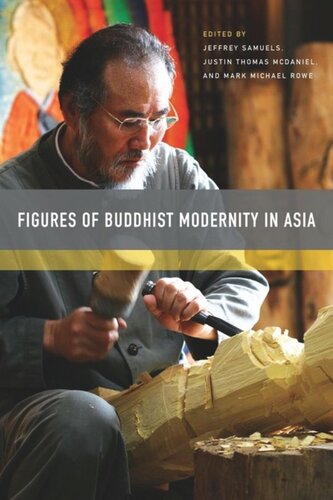

Most ebook files are in PDF format, so you can easily read them using various software such as Foxit Reader or directly on the Google Chrome browser.
Some ebook files are released by publishers in other formats such as .awz, .mobi, .epub, .fb2, etc. You may need to install specific software to read these formats on mobile/PC, such as Calibre.
Please read the tutorial at this link: https://ebookbell.com/faq
We offer FREE conversion to the popular formats you request; however, this may take some time. Therefore, right after payment, please email us, and we will try to provide the service as quickly as possible.
For some exceptional file formats or broken links (if any), please refrain from opening any disputes. Instead, email us first, and we will try to assist within a maximum of 6 hours.
EbookBell Team

4.1
20 reviewsThis book introduces contemporary Buddhists from across Asia and from various walks of life. Eschewing traditional hagiographies, the editors have collected sixty-six profiles of individuals who would be excluded from most Buddhist histories and ethnographies. In addition to monks and nuns, readers will encounter artists, psychologists, social workers, part-time priests, healers, and librarians as well as charlatans, hucksters, profiteers, and rabble-rousers—all whose lives reflect changes in modern Buddhism even as they themselves shape the course of these changes.
The editors and contributors are fundamentally concerned with how individual Buddhists make meaning and display this understanding to others. Some practitioners profiled look to the past, lamenting the transformations Buddhism has undergone in recent times, while others embrace these. Some have adopted a “new asceticism,” while others are eager to explore different religious traditions as they think about their own ways of being Buddhist. Arranging the profiles according to these themes—looking backward, forward, inward, and outward—reveals the value of studying individual Buddhists and their idiosyncratic religious backgrounds and attitudes, thus highlighting the diversity of approaches to the practice and study of Buddhism in Asia today. Students and teachers will welcome sections on further readings and additional tables of contents that organize the profiles thematically, as well as by tradition (Theravada, Mahayana, Vajrayana), region, and country.